If you’re only just tuning in, I recently announced that I’m serializing the opening chapters of my second book, “The True American,” over the coming days here. The introductory post explaining this virtual book club is here. Today, the fifth installment in the series.
LEAVINGS (continued)
Rais was handsome in a way that didn’t impose on a room, with a commanding nose, a full head of jet-black hair, a prominent forehead, and pecans for eyes, which stared intensely even when they smiled. His shoulders plunged humbly instead of spreading out, as though wary of hogging space. He was solidly built, but slender in the way that makes mothers want to cook things.
On the second Tuesday of September, four months into his Texan life, he was at home on a rare day off. He learned that jetliners of the kind he once dreamed of commanding had pierced into that pair of towers he knew so well. Rais was a movie buff who had the ability to see the cinematic analog to almost anything, and the sight of the first tower aflame made him marvel at what those Hollywood types can do. When the second was hit, it chilled him. He thought of how often he had tried to ascend those buildings but been thwarted by the lines.
For the next many days, Rais watched the television throb with rage. He overheard customers venting their anger at people from places whose names they had never pronounced. He remembered them saying things like “Foreigners are taking over our country” and “Kill all the Muslims in the Middle East.” Some of them, seeing a brown-skinned man behind the counter, pressed Rais for his opinion of recent events. He sought to affirm their outrage and partake of it, without getting into too much discussion. What he thought, above all, was that the men who did this were not Muslims, but — and to him the distinction mattered — “people who practice Islam.” They claimed to be Muslim and chanted “Allah” when they prayed and had maybe even gone to Mecca. But in Rais’s vision of faith, they were automatic heathens, disqualified by their deed.
Some long, hot days passed. On the morning of September 17, scanning the Dallas Morning News, Rais saw a story that tensed his chest, under the headline “Fatal Shooting Draws FBI.” A man grilling burgers over at Mom’s Grocery, two and a half miles down on Elam, had been shot and killed under a “We appreciate your business” sign. He was the owner of the store, this man, and apparently he was a Muslim — a Pakistani named Waqar Hasan. The bullet had entered his right cheek, pierced through his skull, and stopped in the neck muscles behind his left ear. That much the police knew, but they had little else. “No motive, no robbery, no suspects, no witnesses,” the police report said. Or, as Rais put it, “No one knew who did, and how, and why did.”
In the nights after the murder, Rais’s mind churned with violent dreams. The setting was always the Buckner Food Mart. He went to Salim with some constructive suggestions. Why not install a real security camera in the store, instead of the fake one they used as a deterrent? Why not maintain two employees in the store at all times?
“It’s just a dream,” Salim said. He sought to calm Rais down. He and his brother knew what they were doing, and they weren’t millionaires. Who would pay for these refinements? It was natural that some angry customers would visit the store. They’d been attacked, after all. They didn’t mean any harm. The best thing was to keep your head down. Salim gave Rais some easy-to-follow advice: “Try to stay away from any kind of conversation with people.” The boss made his friend a deal: no more nights, OK? From now on, Rais would only work mornings. That sounded doable. In Rais’s hierarchy of sentiments, loyalty trumped fear.
September 21 dawned dreary. The monsoon from back home seemed to have followed Rais to Dallas. The big Texas sky crouched low and gray over the station. Unpleasant as it was to people, the half inch of rain brought the soil tremendous relief after a summer that had baked it mercilessly.
Rais had opened the store that morning and would ordinarily have worked until noon. Then a colleague would take over, and Rais could go off to Friday prayers. That colleague had quit a few days earlier, though, so Rais was stuck there all day. So much for the mornings-only deal. Salim was in and out of the store. On a typical day, he might help Rais during the busy morning shift, then drive over to his brother’s construction site, returning to the store in the evening. On this particular day, he came in for less than an hour, then left to pick up some inventory.
Around half past noon, at last, a customer appeared. It was the barber from the Strictly Cuts next door. A tall guy — six foot six or thereabouts. He did his usual American-style lunch of chips and a soda; on occasion, he threw in cookies or candy for a treat. He said something to Rais about all the tension in the city: a lot of people were coming into the barbershop and saying bad things about other people and groups. “Stay safe, man,” the barber said. The barber appeared to bring luck. Within a minute of his parting, the door opened again — yet another customer defying the rain. The man in the entrance immediately seized Rais’s attention because of the red bandana around his mouth. He wore a wife-beater, shorts, a black baseball cap, and wraparound sunglasses that concealed the very parts of his face Rais might otherwise have probed for context. His arms were like massive hams, painted 360 degrees around with inscriptions. He was holding something black and shiny, which he seemed to wish to conceal from the people outside but reveal to the man inside — to Rais. Rais’s institutional memory was improving: “I knew that this time he was not going to sell it to me, because nobody sells guns in the store. They come to rob you.”
Now the man was walking into the store, toward the counter; now he was just feet from Rais on the other side. Proximity revealed that, yes, that shiny black thing was a gun — a double-barreled pistol, it seemed. The man pointed it at Rais’s head.
“Oh, no. Again robbing today?” Rais thought. Oh, Texas — it was becoming a major irritation. “I know the drill,” Rais said, “that I have to open the cash register, open the cash, give him the money, and just stay safe.” Click-whoosh: the register opened. Rais removed $150 or so and placed it on the counter. He made the perfunctory noise about please-take-the-money-but-don’t-hurt-me. He knew his lines by heart now; he was getting good.
But in this play the other player seemed not to know his part. The money did not faze him. All he said was “Where are you from?”
It was obvious to Rais that this question had very little to do with robbing. Maybe he hadn’t heard the man right through his bandana. “Excuse me?” Rais asked faintly. Even as he said this, he felt his spine become an icicle. “Oh my gosh, he’s not here for money,” Rais said to himself. He took a step or two backward and turned his face away from the man.
Then millions of bees came out of nowhere and, as though their last earthly hive had just been destroyed, began what felt like a synchronized mass stinging of Rais’s face. He heard the explosion afterward. The melody of his “Excuse me?” had been revealing enough. At first, he couldn’t bring himself to believe it was a gunshot. “I wanted to give myself benefit of doubt that I was not shot,” he said. Rais tried to reassure himself: “Maybe he shot some drink or something. Not me; I was not shot.” He briefly wondered if he might be hallucinating.
It took the sight of blood, pouring from his head as if from a faucet, to know what had happened. He screamed “Mom” to no one. He had the wherewithal to cup his hands around his head: “I thought that my brain was going to come out any moment — first blood, now the brain.” But the soldier within him couldn’t stop telling himself that this didn’t make any sense. Blood was spilling out of his head, which meant he’d been shot, but a bullet fired into a man’s head from an arm’s length or two away will end him at once. Not only was Rais alive; he was somehow also standing. Why in God’s name was he standing? He considered the notion that he had already died and this was the transition to the Afterward.
Rais now saw that the tattooed man was still in the store, just standing there, gazing at his prey. What had somehow failed to occur the first time would surely occur the second. “If I don’t pretend I’m dying, maybe he might shoot me again, to make sure that I’m dead,” Rais reasoned. He had to play dead. He plunged to the floor, into a small pool of his own blood.
His mind was spinning through a reel of images: his beloved mother and father, his seven brothers and sisters, his lovely Abida. He had promised her he wouldn’t be gone long. Each picture lingered for a few seconds, as though in one of those laptop slideshows. The faces were somber and drooping, looking at him but unable to help, darkly resigned. They seemed to be on the other side of an invisible wall, watching him die. That he recognized this flickering of images from the movies — much as his icicle spine had accurately forecast danger a short while earlier — left Rais especially worried: this was the Hollywood sign for looming death. He was vanishing. He could tell. He saw the pointed tombstones of a Muslim graveyard. He saw his own grave. The horizon drew closer. How many seconds were left? What a life it had been. Where-all it had taken him.
He was thinking of his God. A part of him wanted to believe that this, like everything else, was just a trial. He wondered which of His verses God most longed to hear right now. He decided to hedge his bets: “I wasn’t sure which one is more effective at this moment. Just keep on reciting one by one all the verses.” He whispered to God, from a floor wet with his own juices, lines from surahs known since childhood:
He is Lord of the two Easts and Lord of the two Wests:
Then which of the favors of your Lord will ye deny?
He has let free the two bodies of flowing water, meeting together:
Between them is a barrier which they do not transgress:
Then which of the favors of your Lord will ye deny?
Out of them come Pearls and Coral:
Then which of the favors of your Lord will ye deny?
And His are the Ships sailing smoothly through the seas, lofty as mountains:
Then which of the favors of your Lord will ye deny?
All that is on earth will perish:
But will abide forever the face of thy Lord — full of Majesty, Bounty, and Honor.
Could this God be bargained with? Was this God like the shops in America or the ones back home? Rais wanted to cut a deal. He was a sinner, he confessed into the sky, but in the name of his Prophet and for the sake of his mother, he begged for mercy. “At least don’t make my mom sad,” he asked God. His draining mind offered a quid pro quo: “If you give me my life back today, I will definitely dedicate my life for others, especially for the poor, the deprived, and the needy — I will, I promise. But give me a chance. There are a lot of people that love me. It will be too hard for them to get this message, to see that I’m gone today. Even for the sake of them — for the sake of my mother — please give me a chance.”
The door made its closing sound. The tattooed man was gone. Somehow Rais found the vigor to stand, although he was fading: “I was thinking that I don’t know how many seconds I have before I pass away.” He thought about calling 911, but once again his knowledge of Hollywood returned to him. Weren’t there so many films where some guy is dying and calls 911 and, before he can give full details, collapses? “If I call, staying in the store, and if I pass out, then many a times I saw in the movies that they took the phone but then never could call. Someone saying, ‘Hello, hello. This is 911.’ So I was thinking that I should not stay.” He needed someone nearby to help him. He seized a cordless phone and staggered out of the door, on which his hand left a red imprint. A blood trail followed him to the adjoining Strictly Cuts. When he entered, the sight of him caused customers to panic, some of them running for the back door. Rais managed to grab a barber and begged him to call for an ambulance.
While the barber called, Rais caught a glimpse of himself in the mirror. He saw now that he had been destroyed. His face was perforated in what felt like a hundred places and oozing from every hole. His right eye was shut, caked with blood: “I looked at the mirror and I saw, it’s like all those horror characters in the horror films, with blood pouring, bleeding all over my face. This olive-colored T-shirt was blackish with the blood.” Because vanity is among the more resilient organs, Rais was astonished by his appearance: “I said, ‘Wow — the way I look right now.’ I was a beautiful young guy.” He kept telling himself Death was mistaken. It was too early to bow.
He feared that sitting down and waiting for the ambulance could be fatal. “Now what?” he thought to himself. “I don’t know how many minutes — how long they will take for an ambulance to come. In the meantime, should I just sit down on the floor? Should I just lie down? If I lie down, sit down, it means that’s it — I’m giving it up, and maybe I will pass away. So instead of sitting tight, I should keep myself positive, energetic, and keep on doing something besides reciting Koran — also do some physical thing that will keep me energized. So I was running in the parking lot, back and forth — as if the ambulance is coming from this way, if the ambulance is coming from that way. Which way is the ambulance coming? I was in a craze — that ambulance, where is ambulance? Because I know I have to get treated. I have the phone in my hand — the cordless phone from the store — thinking that they might even call.”
When the ambulance arrived minutes later and its back doors opened, Rais was standing just outside them waiting to board. Then he was on a stretcher inside under the medics’ faces, twirling through the city’s pretzel highways. He remembers worrying that the medics weren’t doing enough quickly enough. “Please, start treating me faster,” he begged. He was fighting the urge to sleep. Sleep, he knew, was the shortcut to death. The pictures of his family kept cycling through his brain, but sometimes now he saw just gray. He could feel that his eyes were dimming, swollen shut by the scalding pellets; his mind was dulling. He was losing the power to think. He couldn’t see. He forced himself to stay conscious for as long as he could. He was aware of being in a hospital. Voices above him spoke urgently about him. Then the world faded to black.
A telephone rang in Dhaka. Rais’s father was bound for the bathroom when he fetched the cordless handset. Your son has been shot, a voice said. The voice sounded far away, but it spoke Bengali. Your boy was shot in the face. He is in hospital. Please continuously pray. Dial tone.
The father, an aging diabetic whose control of his body was starting to desert him, took a moment to process what he’d just heard. His bladder was telling him that he needed, no matter what, to proceed with his bathroom visit. Then he would come out and inform the family about the call. In the bathroom, he collapsed. It was a stroke, triggered by shock, and it took more than an hour for the family to notice his absence. When they found him, the panic about his condition was interrupted by some dark and cryptic news he wanted to share.
It sounded — coming as it did from a frail, unwell man — like some kind of mix-up. Then the reality of it sank in. Then tears and screaming. In the ensuing days, Texas sent them no more news, and the family realized that they stupidly had no phone numbers there besides Rais’s, which wasn’t working. They could only assume the worst: the boy had been shot in the head, after all. The news rippled out through the neighborhood. Friends and relatives began to arrive at the house, seeking updates, offering words of consolation to go with the beef curries and rice they brought to spare the family from cooking in sorrow. Slowly the Bhuiyans pivoted from waiting to grieving. Little Ripon was lost, torn from his sweet bride before she could know him. Why did we let him go? they kept asking themselves, until the question spent itself.
The above is the fifth of eight serialized excerpts from “The True American” that will appear in The Ink. Copyright 2014, W.W. Norton.
For the full book, find it below or wherever you get your books:
Indiebound
Audible audiobook
Amazon
W.W. Norton
Apple
Barnes & Noble
Books a Million
Bookshop.org


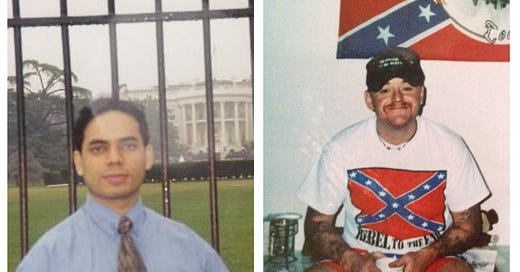




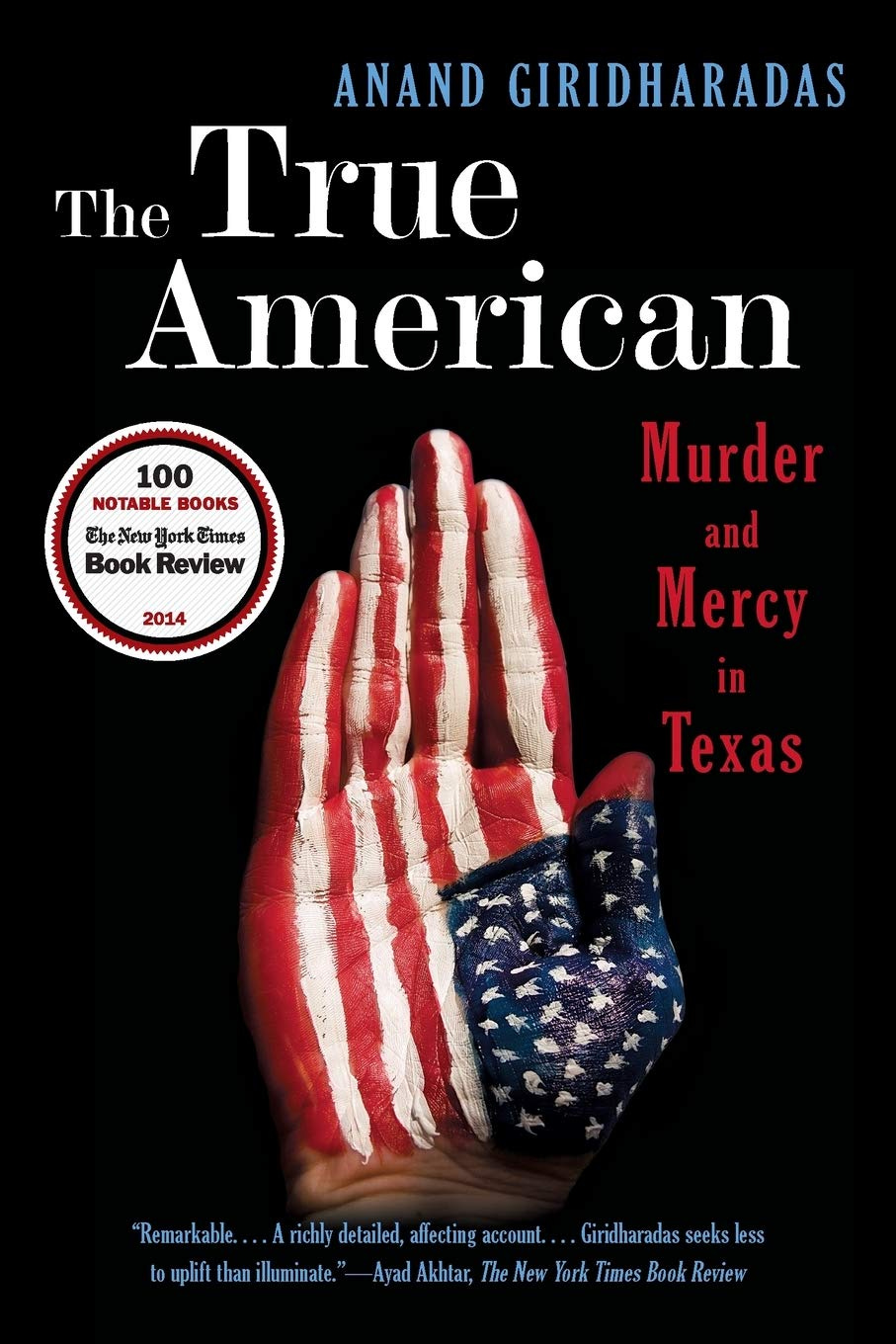



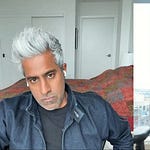
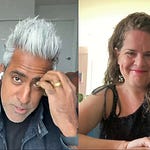

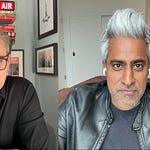
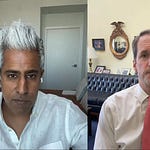
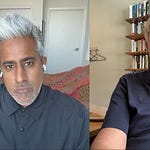
Share this post